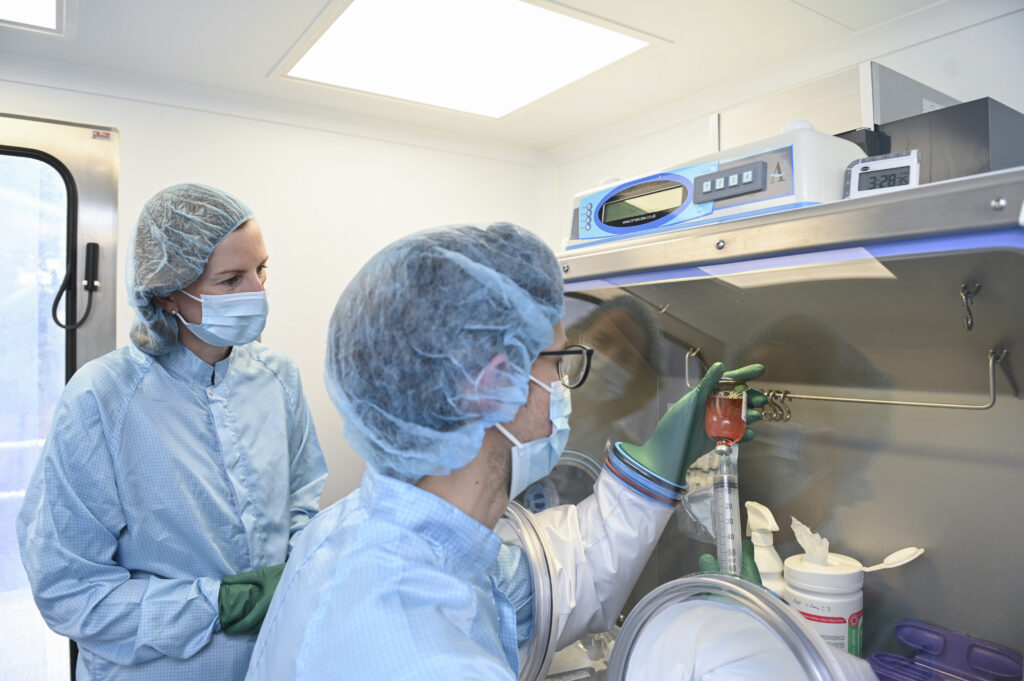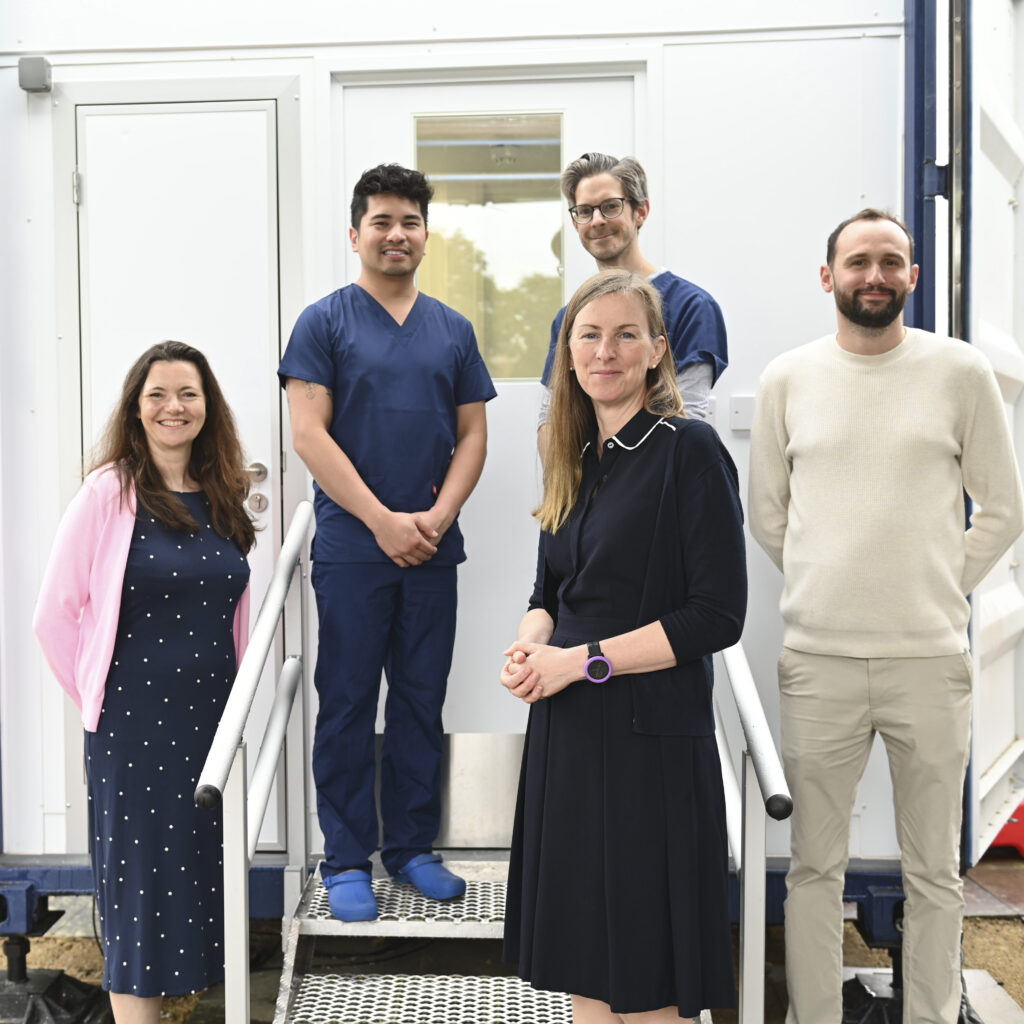Oxford University Hospitals’ (OUH) ability to help develop ground-breaking new therapies has been given a boost with the opening of a new temporary Pharmacy Clinical Trials Unit (CTU).

Based on the Churchill Hospital site, the facility will be used to handle and prepare a new range of medicines known as advanced therapy medicinal products (ATMPs), which are based on gene, tissue or cell therapy products. Many of these are being investigated by NIHR Oxford Biomedical Research Centre (BRC) researchers
The self-contained unit, which was built off-site and is innovative for the NHS, offers the ability to expand capacity in the short term.
OUH Interim Chief Medical Officer, Dr Anny Sykes, said: “This temporary CTU is a critical piece of infrastructure to support cutting-edge research activities carried out in the Trust and by our colleagues in the University of Oxford. It will allow us to provide patient care with revolutionary new therapies for a range of conditions while we work towards the establishment of a permanent CTU in our Trust.”
The temporary Pharmacy CTU passed a quality assurance inspection in June and with further commissioning completed is ready to offer dispensing of doses for patients.
Michelle Taylor-Siddons, OUH Associate Director of Pharmacy, who has overseen the project and the necessary approvals to allow it to operate, said: “This new temporary aseptic unit allows us to handle a whole new class of medicines – ATMPs – that could be either standard of care specialist treatments commissioned by NHS England, or it could be within the context of research trials”.
“The standard of care therapies, although they are licenced, require specialist handling and dispensing. This CTU will allow us to devote the time and resources necessary to dispense individual patient doses. With several ATMPs expected to be licensed in the coming months, this enhanced capacity puts the Trust in an excellent position to win tenders to provide patient care with these new medicines, and support the research and development of other new therapies that we would have been unable to before.”

The new unit comes against a backdrop of rapid advances in treatments such as gene and cell therapies, monoclonal antibodies or mRNA vaccines, many of which are being investigated and developed in Oxford, especially through the Oxford BRC.
Michelle added: “It’s really exciting to be in a position to help support patient care with these new therapies, for example, that help patients with specific genetic inherited retinal disease to be able to see, or to help a child with specific genetic spinal muscular dystrophy to walk. It’s the first time in my life as a pharmacist that I have been able to help to make available medicines that can change lives, in a way that conventional medicines can’t.”
“If as an organisation we want to offer excellence of care and research at the forefront of treatment, we need to get ourselves ready; this is not the end point, this is the starting point. This temporary unit gets us started so we can bid for these tenders and open these trials. It allows us to start the process and give us time to build a new permanent unit which has a much bigger capacity and allows us to lead in this area for years to come.”